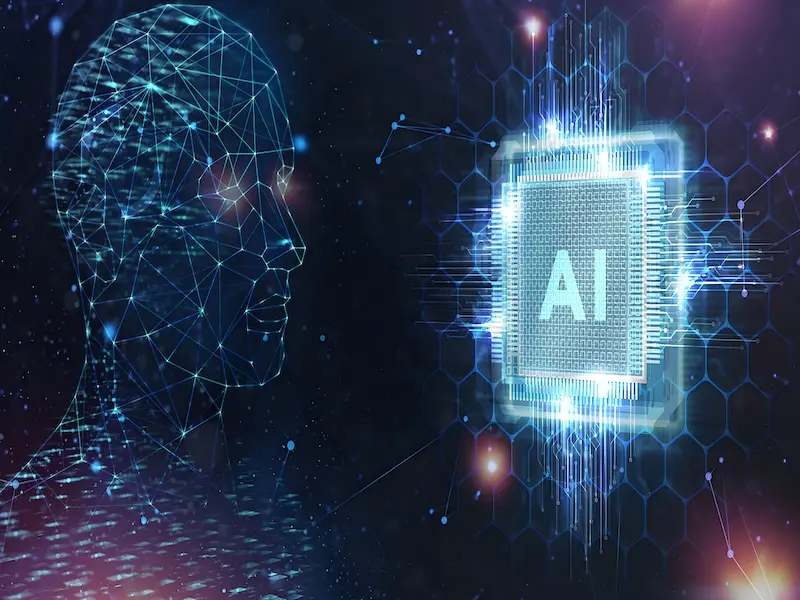- Artificial intelligence (AI) affects our lives more and more. Learn about the opportunities and threats to security, democracy, businesses and jobs.
- In June 2023, the European Parliament adopted its negotiating position on the AI Act, the world’s first comprehensive set of rules to manage the risks of AI.
- By following these steps and engaging in ongoing dialogue and collaboration, we can chart a course for the future of AI that maximizes its benefits while minimizing risks and ensuring that AI serves the common good.
Artificial intelligence presents both opportunities and threats, and the balance will depend on our decisions.
In June 2023, the European Parliament adopted its negotiating position on the AI Act, the world’s first comprehensive set of rules to manage the risks of AI.
In this exploration, we delve into the opportunities and threats that AI brings to the forefront of our collective consciousness.
Opportunities abound
1. Automation revolutionises industries
AI-powered automation has the potential to revolutionise industries across the board. From manufacturing to healthcare, AI streamlines processes enhances efficiency, and reduces operational costs.
Tasks that were once time-consuming and labour-intensive can now be performed with unprecedented speed and accuracy.
2. Enhanced decision making
AI algorithms analyse vast amounts of data to provide insights that aid in decision-making processes.
Whether it’s predicting consumer behaviour, optimising supply chains, or personalising user experiences, AI empowers businesses to make informed decisions that drive growth and innovation.
3. Advancements in healthcare
AI holds immense promise in healthcare, from diagnosing diseases to developing personalised treatment plans.
Machine learning algorithms can analyse medical imaging, genetic data, and patient records to identify patterns and assist healthcare professionals in delivering more accurate diagnoses and effective treatments.
4. Smart cities and infrastructure
The integration of AI into urban infrastructure enables the creation of smart cities that are more efficient, sustainable, and responsive to the needs of citizens.
AI-powered systems manage traffic flow, optimise energy usage, and enhance public safety, ultimately improving the quality of life for residents.
5. Education and learning
AI technologies are reshaping education by personalising learning experiences, adapting to individual student needs, and providing valuable insights to educators.
Virtual tutors, intelligent tutoring systems, and adaptive learning platforms are revolutionising how knowledge is imparted and acquired.
Also read: What AI voice generator is everyone using?
Also read: What AI tool can generate images?
Facing the challenges
1. Job displacement and economic disparity
The widespread adoption of AI and automation raises concerns about job displacement and economic inequality.
While AI creates new job opportunities, it also renders certain skills obsolete, leading to unemployment and widening the gap between skilled and unskilled workers.
2. Ethical considerations
AI systems are not immune to bias and can perpetuate or exacerbate existing societal inequalities.
From biased algorithms in hiring processes to AI-driven surveillance technologies, ethical considerations surrounding fairness, accountability, and transparency must be addressed to ensure that AI benefits society as a whole.
3. Privacy and data security
The proliferation of AI relies heavily on data, raising significant concerns about privacy and data security.
As AI systems collect, analyse, and interpret vast amounts of personal data, there is a heightened risk of breaches, misuse, and unauthorised access, necessitating robust safeguards and regulatory frameworks.
4. Existential risks
The prospect of advanced AI systems surpassing human intelligence raises existential risks that warrant careful consideration.
From unintended consequences to the potential for autonomous weapons and superintelligent AI, the development of AI must be guided by ethical principles and rigorous safety measures to mitigate existential threats.
5. Human-AI collaboration
The integration of AI into various domains necessitates a re-evaluation of the relationship between humans and machines.
While AI augments human capabilities and enhances productivity, it also poses challenges in terms of job displacement, decision-making autonomy, and maintaining human agency in an increasingly automated world.

What should we do to chart a course for the future of AI?
Charting a course for the future of AI involves a multi-faceted approach that combines technological innovation, ethical considerations, policy development, and global collaboration. Here are some steps to consider:
1. Ethical frameworks
Establish clear ethical guidelines and principles for the development and deployment of AI systems. This includes considerations of fairness, transparency, accountability, and privacy.
2. Interdisciplinary research
Encourage collaboration between experts in various fields such as computer science, ethics, law, sociology, psychology, and philosophy to ensure a holistic approach to AI development.
3. Responsible innovation
Promote responsible AI innovation by encouraging companies and researchers to prioritize safety, security, and the well-being of individuals and society.
4. Education and awareness
Invest in AI education and public awareness campaigns to ensure that people understand the capabilities and limitations of AI technologies, as well as their societal implications.
5. Regulatory frameworks
Develop regulatory frameworks that balance innovation with the protection of individual rights and societal values. These frameworks should be flexible enough to adapt to rapid technological advancements.
6. International collaboration
Foster international collaboration and cooperation on AI research, development, and regulation to ensure that AI benefits are shared globally and that risks are mitigated effectively.
7. Diversity and inclusion
Promote diversity and inclusion in the AI workforce to ensure that AI technologies reflect the perspectives and values of a diverse range of communities.
8. Continuous monitoring and assessment
Establish mechanisms for continuous monitoring and assessment of AI systems to identify and address potential risks and biases.
9. Long-term thinking
Encourage long-term thinking in AI development and policy-making to anticipate and prepare for future challenges and opportunities.
10. Public engagement
Involve the public in discussions about the future of AI to ensure that AI development reflects societal values and priorities.
The opportunities presented by AI are vast and transformative, but they come with significant challenges that must be addressed with foresight and diligence.
By following these steps and engaging in ongoing dialogue and collaboration, we can chart a course for the future of AI that maximizes its benefits while minimizing risks and ensuring that AI serves the common good.

